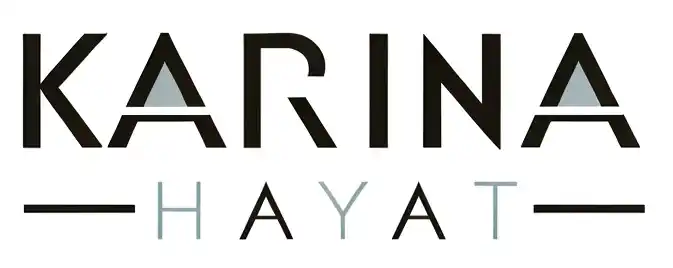Successful Interview Strategies to Shine in Any Job Interview by Salma Karina Hayat

Job interviews can feel like stepping into the unknown, but they don’t have to be intimidating. Think of them as a chance for you to showcase your strengths while assessing if the role aligns with your goals. This guide goes beyond the usual advice, offering successful interview strategies to help you stand out, communicate effectively, and leave a lasting impression. Whether you’re a seasoned professional or just starting your career, these insights will empower you to navigate interviews with confidence and clarity. Let’s dive in!
1. Successful Interview Strategies Start With a Mindset Shift
Many candidates approach interviews as high-stakes performances, where they need to impress the interviewer with rehearsed answers. But the most successful interview strategies often involve transforming the process into a natural conversation. Shift your mindset from “I need to prove myself” to “I’m exploring if this is the right opportunity for both of us.”
For instance, instead of rigidly sticking to your rehearsed responses, allow room for a natural flow in the conversation. Share relevant stories, ask questions that spark engagement, and focus on mutual discovery. This approach helps create rapport and allows the interviewer to see the real you.
2. Don’t Just Answer Questions, Share Insights
Most interviewers will ask you about your experience, but you can elevate your responses by sharing insights that go beyond the typical answer. Instead of just explaining how you’ve managed a project or task, tie your answer to a broader trend, observation, or lesson that the company might benefit from.
For example, if asked about your leadership style, instead of simply saying “I’m collaborative,” consider saying, “I observed that teams with more autonomy and accountability tend to innovate more, and I’ve applied this approach to help boost team morale and productivity in previous roles.”
This level of insight demonstrates your thought leadership and can make you stand out as a forward-thinking candidate.
3. Cultivate the Art of Listening Between the Lines
Interviews are not just about answering questions; they’re about listening and understanding what’s unsaid. Pay close attention to how the interviewer reacts to your responses. Are they nodding enthusiastically, or do they seem disengaged? Do they quickly move past certain topics or dwell on others? These are clues you can use to adjust your approach during the conversation.
For example, if they seem particularly interested in your ability to handle ambiguity, elaborate on times when you thrived in uncertain situations. If they’re more concerned with team dynamics, focus your stories on collaboration and communication. Listening to these subtle cues allows you to adapt and engage at a deeper level.
4. Frame Your Experience in Terms of Impact, Not Tasks
When describing your past roles, avoid listing responsibilities. Instead, focus on the impact you made. What did you contribute to the company’s bottom line? How did you influence team culture? Employers want to know how you will move the needle once hired, so demonstrate that impact with quantifiable results.
For instance, rather than saying, “I was responsible for managing client accounts,” say, “I managed a portfolio of clients that resulted in a 20% revenue growth for the company within the first year.” This reframing demonstrates not only your skills but also your ability to drive results—an essential component of successful interview strategies.
5. Understand the Hidden Culture Through Your Questions
The best way to gauge the company culture is not by asking direct questions like, “What’s the culture like?” Instead, ask questions that reveal the unspoken dynamics of the workplace. For instance:
- “Can you tell me about a time when the team had to overcome a challenge together?”
- “What does success look like in this role on a day-to-day basis?”
- “How does the company support employees in maintaining work-life balance?”
These questions give you insight into how the company operates behind the scenes and show that you’re thinking about more than just the job duties.
7. Have a Strong Elevator Pitch (But Don’t Sound Like You’re Reading a Script)
You’ve probably heard the term “elevator pitch” before, but in the context of a job interview, it’s essential to have a concise and engaging way of introducing yourself. This isn’t about rattling off your resume; instead, it’s about crafting a quick narrative that ties your experience, skills, and passions together.
For example, you could say, “I’m a product manager with over five years of experience in leading cross-functional teams. My passion lies in taking complex challenges and translating them into simple, customer-centric solutions. I’ve helped companies grow by enhancing their product offerings and ensuring they resonate with end-users.” This elevator pitch creates a memorable first impression without sounding rehearsed.
8. Leveraging Curiosity for a Successful Interview Strategy
Interviews should be a two-way street. While you’re there to prove you’re a fit for the role, it’s also an opportunity to determine if the company is right for you. Ask questions that reflect your curiosity about the company’s goals, growth opportunities, and challenges. This shows that you are not just focused on the pay check, but on long-term alignment.
For example, ask about:
- “What’s the company’s vision for the next five years?”
- “How does this role align with the company’s long-term strategy?”
- “What kind of professional development opportunities does the company offer?”
These questions not only give you valuable insight but also demonstrate that you’re invested in the company’s future.
9. The Power of “Thank You”
One of the most underrated yet effective successful interview strategies is sending a thoughtful follow-up email. One of the most underrated yet effective successful interview strategies is sending a thoughtful follow-up email. Most candidates settle for generic messages like “Thank you for your time,” but adding a personal touch makes a stronger impression. Refer to specific topics discussed during the interview and reinforce your enthusiasm for the role.
Conclusion
I believe these successful interview strategies prove valuable in helping you approach your interviews with clarity and make a strong impact. Job interviews don’t have to be nerve-wracking or tedious. By embracing the conversation, understanding company needs, framing your experience with impact, and staying curious, you’ll set yourself up for success. Remember, each interview is an opportunity to improve and move closer to the right role for you.
What strategies do you find most effective in job interviews?
